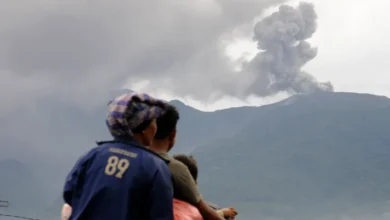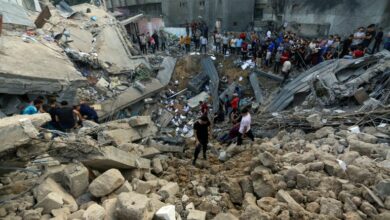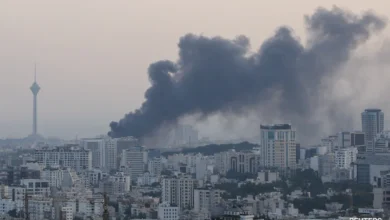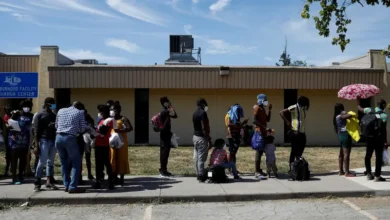‘Impunity must end’: World reacts to ICJ ruling against Israeli occupation

International reaction has poured in since a ruling by the top United Nations court that Israel’s continued presence in the occupied Palestinian territory is unlawful and should swiftly be brought to an end.
Palestinian officials have hailed the International Court of Justice ruling as a “watershed moment” in their decades-long fight for justice. Israel quickly condemned Friday’s decision, while its top ally the United States criticised the ruling on Saturday after initial silence.
While nonbinding, the advisory ruling by the 15 judges found that Israel has no right to sovereignty over the occupied territory, has violated international laws against acquiring territory by force and is blocking Palestinians’ right to self-determination.
It further determined countries are obligated not to “render aid or assistance in maintaining” Israel’s presence in the territory.
Australia
The government of Prime Minister Anthony Albanese said it respects the ICJ’s “role in upholding international law and the rules-based order”.
“We want to see concrete steps taken by Israel to cease the expansion of settlements to respond to extremist activity,” the government said in a statement, adding that it was still “carefully considering the detail” of the ruling.
Belgium
Minister of Foreign Affairs Hadja Lahbib said in a social media post: “Belgium will always stand up for the respect of international law.”
Brazil
The Ministry of Foreign Affairs said the ruling “reinforces the need for a two-state solution, with an independent and viable state of Palestine living side by side with Israel, in peace and security, within the 1967 borders, which include the Gaza Strip and the West Bank, with East Jerusalem as its capital”.
Bolivia
The Ministry of Foreign Affairs called on the UN and its member states to “take appropriate measures to stop the crimes being committed in the Gaza Strip and guarantee Palestine’s right to self-determination”.
Bolivia cut ties with Israel in the early days of the war and later became the first Latin American country to back a separate genocide case brought against Israel by South Africa at the ICJ.
Egypt
The Ministry of Foreign Affairs called on Israel to end the occupation promptly, halt any new settlement activities and evacuate all existing settlements.
Iceland
The Ministry of Foreign Affairs said the ICJ ruling is “clear”.
“Continued Israeli occupation of the West Bank and East Jerusalem is unlawful and so are its settlement activities. Iceland calls on Israel to cease all activity that violates international law,” it said.
United States
The administration of President Joe Biden, which often stresses the “rules-based order”, criticised the ruling despite acknowledging that Israeli settlements are “inconsistent” with international law.
“We are concerned that the breadth of the court’s opinion will complicate efforts to resolve the conflict and bring about an urgently needed just and lasting peace with two states living side by side in peace and security,” the US Department of State told the Reuters news agency.
Indonesia
The Southeast Asian country said the ruling “addressed the aspiration of Indonesia and the rest of the international community in delivering justice for the Palestinians”.
“Indonesia calls on the UN General Assembly and the Security Council to meet the request of the court by considering appropriate means and necessary steps to end Israel’s unlawful presence in Palestine,” the Ministry of Foreign Affairs said.
Ireland
Foreign Minister Michael Martin said he will work with partners in the EU and UN “to see how we can now bring to bear this authoritative opinion by the court to end … Israel’s illegal presence” in the occupied Palestinian territory.
Qatar
The Ministry of Foreign Affairs said the ICJ ruling “reflects the high provisions of international law that must be respected”.
It reiterated Qatar’s “firm position on the justice of the Palestinian cause and the moral imperative to support the legitimate rights of the brotherly Palestinian people”.










